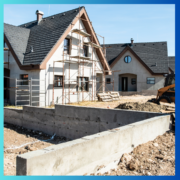The Importance of Pre-Drywall Inspections When Buying a New Build Home
Embarking on the journey of buying a new build home is an exciting yet intricate process. While the allure of a brand-new, pristine property is undeniable, it’s crucial for homebuyers to be vigilant throughout the construction phases. One key step in this process is opting for a pre-drywall inspection. In this blog, we’ll delve into why this inspection is a wise decision and what buyers should expect during this crucial phase.
Why Opt for a Pre-Drywall Inspection:
- Identifying Construction Defects: A pre-drywall inspection allows buyers to catch potential issues before the walls are sealed. This stage is pivotal as it provides an opportunity to identify and rectify any construction defects that might be hidden once the drywall is in place. Common issues include improper wiring, plumbing discrepancies, or structural concerns.
- Ensuring Code Compliance: Building codes and regulations vary, and it’s imperative that your new home adheres to these standards. A pre-drywall inspection helps ensure that the construction is in compliance with local building codes, giving you peace of mind that your investment meets safety and quality standards.
- Ample Time for Corrections: Conducting an inspection at the pre-drywall stage gives builders enough time to address any concerns or deficiencies. This proactive approach prevents issues from compounding and becoming more challenging to rectify once the construction is complete.
What to Expect During a Pre-Drywall Inspection:
- Access to the Property: Coordinate with your builder to schedule the inspection at the appropriate time during the construction process. This is typically after the framing, electrical, and plumbing rough-ins but before the installation of drywall.
- Thorough Examination of Critical Systems: A comprehensive inspection should focus on critical systems such as electrical wiring, plumbing, HVAC, and structural elements. Inspectors will examine the quality of workmanship and ensure everything is up to standard.
- Documentation of Findings: The inspector will document any issues discovered during the inspection and may provide photographic evidence. This detailed report becomes a valuable tool for communication between the buyer and the builder.
- Communication with the Builder: Following the inspection, communicate openly with your builder about the findings. A reputable builder will be responsive to your concerns and take necessary steps to address any identified issues.
Conclusion:
In the pursuit of a dream home, a pre-drywall inspection is a strategic move for homebuyers. It acts as a safeguard against potential future headaches and ensures that your new build is not only aesthetically pleasing but also structurally sound and code-compliant. By investing time and effort into this crucial phase, you set the foundation for a home that not only meets but exceeds your expectations. Remember, an informed buyer is an empowered homeowner.


